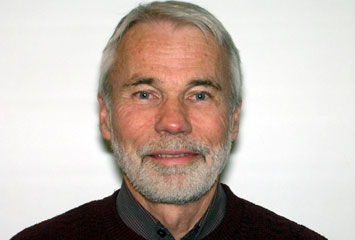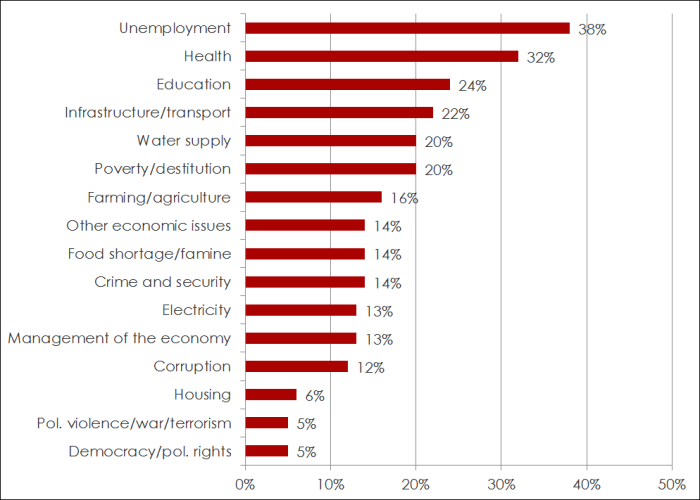Originally posted on OECD Development Matter blog.
 By Michael Bratton, University Distinguished Professor of Political Science and African Studies at Michigan State University and senior adviser to Afrobarometer, and E. Gyimah-Boadi, Executive Director of Afrobarometer and the Ghana Center for Democratic Development.
By Michael Bratton, University Distinguished Professor of Political Science and African Studies at Michigan State University and senior adviser to Afrobarometer, and E. Gyimah-Boadi, Executive Director of Afrobarometer and the Ghana Center for Democratic Development.
Beyond the limelight and the headlines, the recent Group of 20 (G20) summit accomplished an important piece of business by launching the Compact with Africa. The next step is crucial: negotiating the priorities that the compact will address.
One key concept is that the compact is with – rather than for – Africa, implying that it will rely on true partnerships to pursue mutually agreed-upon goals.
With its contribution to a “20 Solutions” document presented to the G20 by a consortium of think tanks, the pan-African research network Afrobarometer is working to ensure that the compact will take into account what ordinary Africans say they want and need.
Based on public-attitude surveys in 36 African countries, our data suggest that:
- Infrastructure investment in Africa should continue to be a key priority of G20 policies.
- Investments in employment, education, health and (especially in rural areas) food security should be further strengthened.
- G20-Africa co-operation needs to reflect the fact that trustworthy, accountable institutions are a key factor for effective development policies.
Infrastructure investment
Millions of Africans experience “lived poverty,” or shortages of life’s basic necessities. In 2014/2015, substantial proportions of survey respondents say they went without a cash income (74%), necessary medical care (49%), enough clean water (46%), enough food (46%) and/or enough cooking fuel (38%) at least once during the previous year.

Encouragingly, levels of lived poverty in Africa are in decline. Between our 2011 and 2015 surveys, our Lived Poverty Index (LPI or an average score on these five basic necessities) was down in 22 of the 33 countries included in both surveys.
Surprisingly, we found no relationship between average annual GDP growth rates and declines in the LPI, suggesting that something other than recent macroeconomic growth in many African countries must be at work.
Instead, our data point to the importance of basic development infrastructure: Lived poverty tends to decrease in countries that make progress in paving roads and installing sewage systems. In Kenya and Tanzania, for example, a 33% increase over the past decade in the number of localities with these facilities is associated with a 6% decrease in their LPI scores.
But the delivery of basic service infrastructure remains a challenge. Only about two-thirds of Africans live in communities with an electric grid (65%) or piped water (63%). While almost all reside in areas with cell phone service (93%), only about half (54%) enjoy close-by access to paved roads.
Development priorities
When Africans are asked what they consider “the most important problems” their governments should address, the top priority is unemployment, followed by health, education and infrastructure (especially roads but also water supply and electricity) (Figure 1).
Priorities depend in part on where respondents live. In countries where a majority of the population resides in towns, 51% cite unemployment as a priority problem, and only 6% prioritise food security. But in countries that remain predominantly rural, only 32% list unemployment, while almost one in five persons (18%) say that ensuring food security remains a pressing development need.
Figure 1: Most important problems | 36 countries | 2014/2015

Respondents were asked: In your opinion, what are the most important problems facing this country that government should address? (Note: Respondents could give up to three responses. Figure shows % of respondents who cite each problem amongst their top three.)
Trustworthy institutions and development outcomes
While physical infrastructure is critical, sustainable development is more than a technical or engineering exercise. As SDG 16 states, “effective, accountable institutions” are essential elements in the development mix.
From a public opinion perspective, the core requirement is institutional trust – useful shorthand for whether citizens think they are being supplied with good governance.
Africans find certain executive agencies, such as the national army and the presidency, to be quite trustworthy (64% and 57% respectively), especially when compared with legislative and electoral institutions (47% and 44% respectively). Popular trust in the core executive institutions of the presidency, the army and the police varies considerably across African countries, from more than 80% in Niger and Burundi to less than 40% in Nigeria, Liberia, and São Tomé and Principe (Figure 2). On average, a majority of Africans (57%) express a basic level of trust in state institutions.
Figure 2: Trust in the state* (%) | 36 countries | 2014/2015

* Core executive institutions only (president or prime minister, army, police)
Respondents were asked: How much do you trust each of the following, or haven’t you heard enough to say? (mean % of respondents who say “somewhat” or “a lot”)
Institutional trust is strongly related to perceptions of corruption, a negative relationship that holds for every institution Afrobarometer studied and especially for the presidency.
But is institutional trust a “driver” of sustainable development? Afrobarometer’s research suggests that it is. If we take Africans’ “most important problems” (Figure 1) and examine the proportion of citizens who think their government is performing well at addressing these problems, we find that for every one of the public’s stated development priorities, institutional trust is closely and positively correlated with government performance.
Which comes first, trust or performance? We’re not certain. However, preliminary analyses support the reasonable assumption that only trustworthy institutions have the social and political capital necessary to mobilise popular involvement for achieving the development outcomes that Africans say they want.

